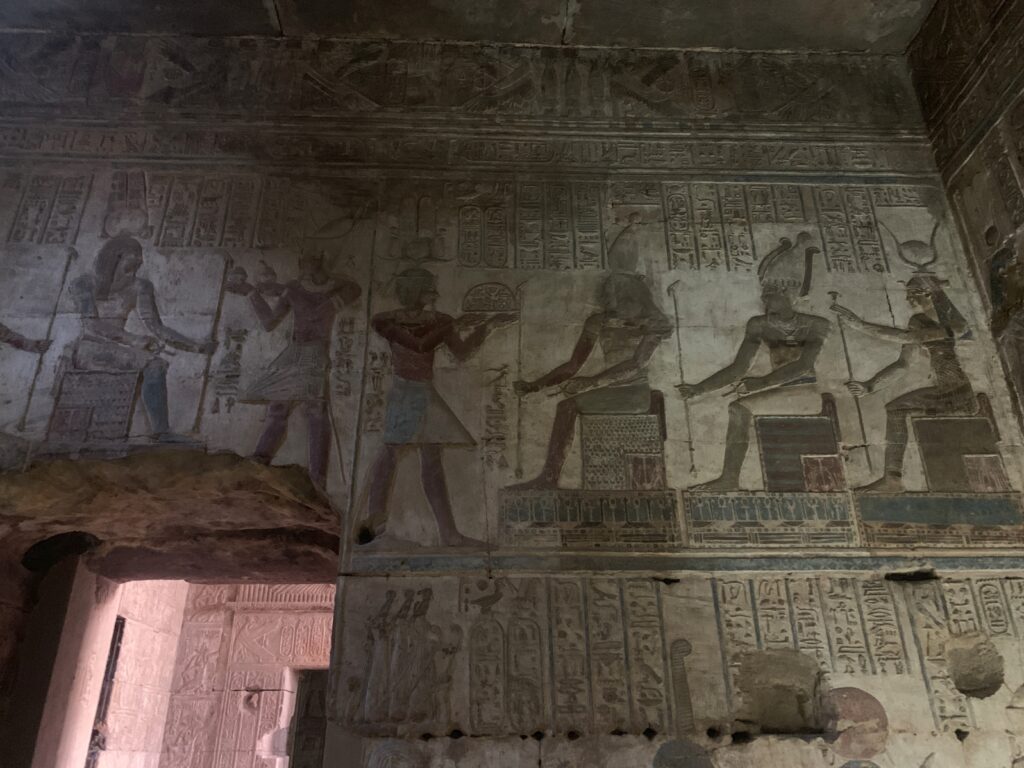Egyptian Festivals and Celebrations: A Reflection of Historical and Cultural Heritage

By: Rania Elshanawy / Arab America Contributing Writer
Egypt, a place of historical wonders and lively traditions, celebrates a number of festivals and festivities that highlight the country’s rich history and culture. These celebrations are not only occasions of pleasure and celebration but also significant reminders of the country’s rich history and unique heritage. From the grandeur of ancient ceremonies to the warmth of current family gatherings, Egyptian festivals embody the essence of the country’s character and history.
Ancient Egyptian festivals were enormous celebrations that were closely tied to their religious beliefs. One of the most significant was the Opet Festival, which celebrated the god Amun, his wife Mut, and their son Khonsu. This festival in Thebes (modern-day Luxor) included a spectacular parade from the Karnak Temple to the Luxor Temple, which symbolized the pharaoh’s divine authority and the kingdom’s unity. The city would come alive with music, dance, feasting, and sacrifices, showing Egyptians’ strong admiration for their gods and faith in their
Another important event was Wepet-Renpet, or the New Year Festival, which coincided with the yearly flooding of the Nile. This flood was essential for agriculture, delivering nutrient-rich silt to the fields and guaranteeing successful harvests. The celebration featured rites honoring gods like Osiris, who have a connection with fertility and rebirth. These ceremonies allowed ancient Egyptians to show their gratitude for the Nile’s life-giving waters and their connection to the land.
When Islam arrived in Egypt in the seventh century, it adopted new religious traditions while preserving components of its old past. Islamic festivals like Eid al-Fitr and Eid al-Adha are celebrated all throughout the country. Eid al-Fitr, which marks the conclusion of Ramadan, is a time for community prayer, feasting, and giving to those in need. Families meet to share meals, and special treats such as kahk (cookies) are prepared. This holiday celebrates forgiveness, appreciation, and community while emphasizing Islamic principles and the significance of family relationships.
Eid al-Adha, which celebrates Ibrahim’s (Abraham’s) willingness to sacrifice his son in obedience to God, entails the ritual killing of animals, with the meat shared with family, friends, and the poor. This gesture represents commitment, kindness, and social solidarity, emphasizing the cultural value of mutual assistance and compassion.
Egypt’s Coptic Christian community, one of the oldest Christian groups in the world, has its own distinctive festivities that reflect its rich religious and cultural past. Coptic Christmas, held on January 7th, is a prominent religious feast highlighted by midnight Mass, lavish banquets, and gift exchanges. The month leading up to Christmas involves a fast known as Advent, emphasizing ideas of purity and spiritual regeneration.
Easter, also known as the Feast of the Resurrection, is the next important Coptic event after Holy Week, which remembers Christ’s passion. Special church services, processions, and a joyous dinner are held to mark the conclusion of Lent’s 55-day fast. These celebrations emphasize the Coptic community’s strong faith and long-standing customs.
In addition to religious festivals, modern Egypt observes various national holidays that represent its current character and historical landmarks. Revolution Day, July 23rd, honors the 1952 Revolution, which resulted in the foundation of the contemporary republic. The day is observed by patriotic displays, parades, and public speeches commemorating the country’s growth and the achievements of its people.
Egyptian festivals and festivities highlight the country’s diverse history, religion, and culture. Whether based on ancient ceremonies, religious observances, or current national pride, these events help to foster social relationships, conserve heritage, and celebrate Egypt’s multifaceted culture. They provide a glimpse into the essence of the country, displaying a deep link to the past and a lively, dynamic presenter.
Check out our Blog here!








